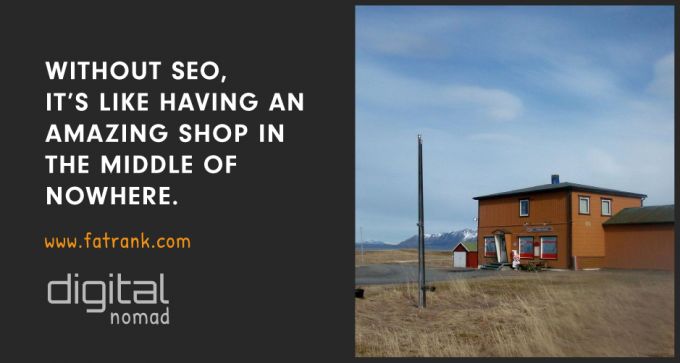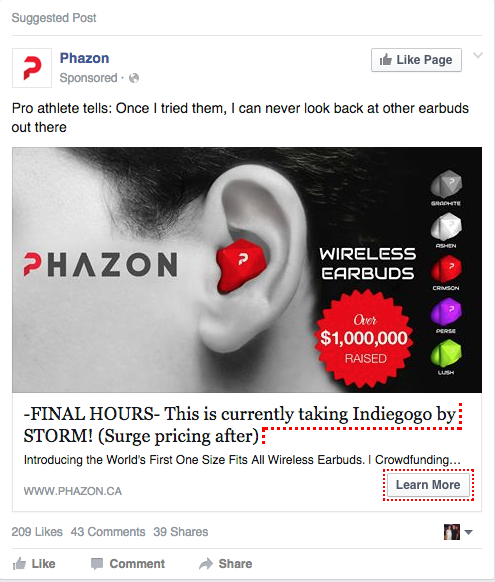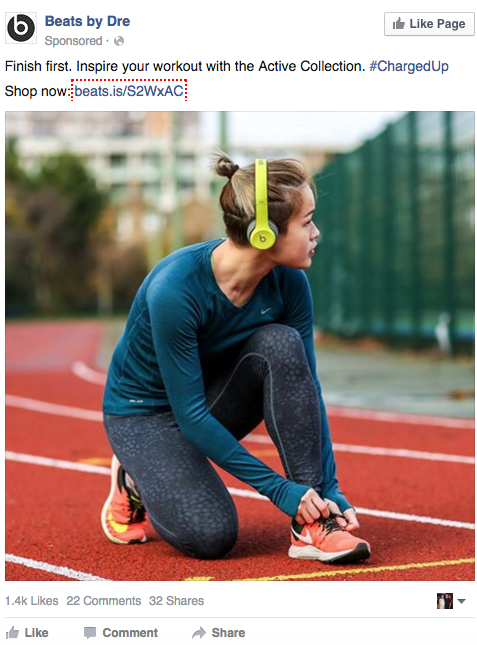There is an ongoing debate between digital marketing professionals over which method of SEO is most beneficial – Organic or paid? There is no straightforward answer to this question because it really depends on the niche you’re trying to rank for, keyword competition, target audience and a whole load of other factors.
Check out this post to see an introduction to SEO and internet marketing if you are unsure about some of the strategies used here. Only you will know what strategy is best for your particular situation and the site you are trying to rank. Let’s take a look at these two methods and compare their pros and cons.
Organic SEO
This is an approach where you can apply certain techniques to a website in order to achieve a higher ranking in organic search engine results pages (SERPs). For example if you sell garden furniture and you want people to find your website when they search terms like ‘garden seating’ or ‘lawn chairs’, you could apply organic SEO methods to get your site at the top of Google’s results.
These techniques include things like targeting your main keywords, writing good quality content and building links from other websites to yours. When done correctly, these methods can be very successful in ranking your website for your chosen keywords. So when potential customers search for those words, Google will display your site first.
Advantages
- With a good organic SEO strategy, you can get your brand to the number 1 position for your targeted keywords. The top spot will usually get the most clicks from users. Therefore you’ll get the most people visiting your site and potentially buying your product or service.
- 80% of search engine users will click on an organic result instead of a paid advert. This is because people usually see those results as being more relevant to their search, since they appear at the top naturally instead of through an ad campaign. Sometimes the adverts displayed for a certain search term will not be completely relevant to what the user is looking for. This then makes people click off the site.
- To get long term results for your brand, organic SEO is the best approach to take. Once you have built up your site enough and the strategy is well maintained, you can reach the top of the search engine results page and stay there for a long time. This creates a better return on investment from all of the effort you put into ranking with SEO.
- There will usually be a price to pay for SEO tools and techniques. There are no additional costs for every time someone clicks onto your site.
Pay Per Click (PPC)
This paid advertising approach displays your website in a set of ads at the top of the search results when someone types in the keyword you are targeting. When a user clicks on the link to your site through an advert, you pay Google an amount of money. The Cost Per Click (CPC) will vary depending on your keyword and the competition for that word or phrase.
If you want a PPC advert for a keyword which a lot of people are trying to target, it will cost much more per click than a keyword with little competition. For some niches, Pay Per Click marketing could work, but with others it may be a waste of money.
Advantages
- If you are looking for short term results which will only be relevant for a short time, PPC is a good strategy. For example, if you were selling fancy dress costumes and you wanted to rank for new Halloween costumes. A PPC campaign would be perfect for this because you would probably want to target it for a limited time. Between September and October people are looking for those products, so you want them to find your site. Once Halloween is over, there won’t be as many people searching for that keyword. This means you can stop your Pay Per Click campaign.
- Advert clicks are more likely to convert into a sale because these pages are specifically designed for conversion with clear calls to action.
- It’s possible that someone could see your paid ad in SERPs and not click on it. But they could keep seeing your brand name pop up each time they search for the same thing. If someone is browsing for a certain product or service and they keep seeing your name, they might even end up searching your brand name and going through to your site anyway. This way your brand will be presented to people, and they will end up on your site without you even having to pay for the click.
- It is easier to measure results from PPC, choose how much you pay and adjust your strategy to create the best return on investment. A certain keyword or page may be getting people to click onto it, but not converting into sales. You could change your approach by using different keywords or improving the landing page. With organic SEO it’s not always simple to see what you need to change in order to deliver better results.
- Once you’ve decided on your niche and done some worthwhile keyword research, PPC campaigns require little to no effort to setup.
The Hybrid Approach
For many niches the best technique is to use both organic SEO and PPC. By adjusting the approach to suit your keywords and which products you are trying to target at which time. Carrying out organic SEO through keyword research, quality content writing and link building is vital for building long term results.
This will take time for you to rank above your competition for your main keywords. But you will see a long lasting return on investment. If you need instant results, a Pay Per Click campaign may be the best option for your company. Or this could just for certain keywords you’re trying to rank for with your site.
For example imagine you were having a sale on some of your products for a limited time. There’s no point in trying to organically rank for this as the page won’t be relevant when the sale finishes. With PPC you can display your site in SERPs for a short time, and then end the campaign when you no longer need it.

It’s important to take the hybrid approach on board rather than disregarding one part. By combining PPC with organic search engine optimisation you can improve the chances of ranking higher in the paid results. Different PPC ads will rank better due to a variety of different factors. These include the amount you are willing to pay, the relevancy, as well as your organic techniques.
As an example, people who pay more for their ads but do not have quality content that is relevant to the keyword you are trying to rank for are unlikely to rank better in the Pay Per Click ad results than a page that has lots of relevant content which is of a good quality.
I would recommend the hybrid approach for most niches. It generates both long lasting rankings for your brand, as well as instant results where it’s necessary. If you’d like to find out more on the debate between organic and PPC you can check out this blog which also looks at the argument.
Bonus Tips
As well as these two popular methods, there are plenty of other internet marketing tricks that you can use. Many of these can help maximise sales and bring in new customers. It’s all about making the most of every potential customer, and every person who visits your site. Somebody looking for a service you provide could land on your page, read some information, and then leave without enquiring with you. Instead of letting that potential sale get away, you can try to bring them back by being proactive and using a few handy tips.
Social Media
Most people these days will have some sort of social media account. It could be Facebook, Twitter, LinkedIn, Instagram, or all of the above. The power of these social platforms for marketing is huge because you can present your brand and the service you offer to a massive audience. Social media ads can be targeted towards people based on the type of person they are. You can also relate it to the things they like.
So for example, you are trying to sell men’s cycling gear through Facebook advertising. You can target your advert so it only displays for men between a certain age who like pages about cycling. This is something that works on other social media sites like Instagram and Twitter as well.
Instead of people searching Google to find something they need, you are presenting your products to people. These are people who didn’t even know they wanted them until they saw your ad. This is much more proactive marketing, as opposed to organic SEO ranking which just reacts to someone’s search query for a specific product or service.
This example below shows a Facebook ad I saw earlier on today. As you can see, the post is getting plenty of likes, comments shares and general traffic so this campaign seems to be working really well. These earphones actually look kinda cool, too.

Retargeting
This is a user specific technique which tracks what internet users are looking at through cookies or other software. It then retargets advertising to other sites. Most people have probably been targeted by one of these marketing strategies at some point.
For example, you go onto a clothes website and look at a few pairs of jeans that you are thinking about buying. You decide you aren’t ready to buy yet so you leave the site. Then over the next few days you’ll start to see the same jeans popping up in adverts on other websites. These are often sites like YouTube, Facebook and many others. Why not apply this technique for when someone visits your own site? You can retarget them with adverts to try and bring them back to purchase what they were looking at.
So after clicking on the wireless earphones above and having a look through their site, my cookies were then tracked on my computer to trigger more ads in relation to that product. Below is a prime example of retargeting taking place. Literally 5 minutes after viewing the wireless earphones above, I scrolled through Facebook again. I found that the very popular Beats by Dre wireless headphones were running a sponsored campaign on my feed. Coincidence? I think not.

Email Marketing
Offer your website visitors a chance to sign up to an email newsletter. You can let them know about new products and latest offers from your company. Getting plenty of people to sign up for regular updates will allow you to build a database of potential customers. Then, you can then send out marketing emails notifying them of things they might have an interest in. Again, this is a proactive method which attracts people to buy something. They might not have necessarily been thinking about it before receiving your email. This also can be good for your site rankings. These users might click on a link directly or do a branded search for your company or products and this is great for traffic. To find out more about direct traffic and branded searches, click here.
Summary
On the whole, an online marketing strategy which makes the most of these different techniques and implements them in an effective way is going to be most successful. It is important to figure out what combination is going to work best for your niche. You can then apply those methods to your campaign.
Please leave a comment below if you would like to tell us your thoughts on organic SEO, PPC and proactive digital marketing. We’d love you hear what you think!
All SEO Related Posts
Check out the in-depth list of SEO posts.
The full list shows the various SEO strategies to help your online marketing knowledge grow fast in December 2022.

Digital Nomad
I’m a full-blown Search Engine Optimization specialist earning the majority of my income from SEO-focused endeavours, including affiliate marketing, lead generation, as well as SEO services. Love travelling the world networking while working on my laptop. Life is a perception of your own reality. You have no excuses and should be making memories every single day.

0 Responses to Organic SEO vs PPC vs Hybrid